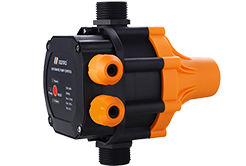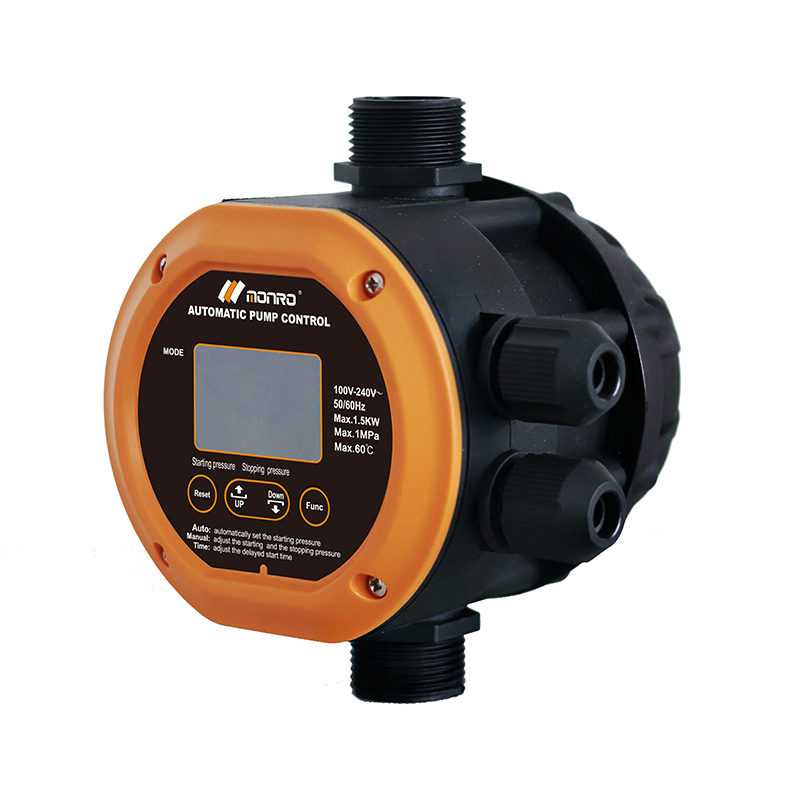Don't hesitate to send a message
Web Menu
Product Search
Exit Menu
The Impact of Booster Pump Controllers and Automatic Water Pump Pressure Controllers
Efficient water supply systems are essential for meeting the demands of growing populations and sustaining economic development. Booster pump controllers and automatic water pump pressure controllers play crucial roles in optimizing the performance of these systems.
The Impact of Booster Pump Controllers:
Booster pump controllers are instrumental in increasing water pressure in low-pressure areas of water supply networks. Here's how they impact the efficiency of such systems:
Enhanced Water Pressure: Booster pump controllers boost water pressure to ensure consistent delivery to areas experiencing low pressure. By maintaining adequate pressure levels, these controllers improve the reliability of water supply, reducing the likelihood of disruptions and ensuring uninterrupted service to consumers.
Improved Flow Rates: Booster pump controllers enhance flow rates in water supply systems, particularly in high-demand areas or locations with elevation differences. By increasing pressure, these controllers facilitate the efficient distribution of water, minimizing delays and ensuring timely delivery to consumers.
Energy Efficiency: Booster pump controllers optimize energy usage by adjusting pump operation based on demand. By activating pumps only when necessary and modulating their speed to match flow requirements, these controllers reduce energy consumption, resulting in cost savings and environmental benefits.
Remote Monitoring and Control: Many booster pump controllers feature remote monitoring and control capabilities, allowing operators to monitor system performance and adjust settings remotely. This enhances operational efficiency by enabling proactive maintenance, troubleshooting, and optimization of pump operations without the need for on-site visits.
The Role of Automatic Water Pump Pressure Controllers:
Automatic water pump pressure controllers play a vital role in regulating water pressure and pump operation. Here's how they impact the efficiency of water supply systems:
Pressure Regulation: Automatic water pump pressure controllers maintain good pressure levels in water supply networks by automatically starting or stopping pumps based on pressure fluctuations. By ensuring consistent pressure, these controllers prevent over-pressurization, which can lead to leaks, bursts, and wasted water.
Pump Protection: Automatic water pump pressure controllers protect pumps from damage caused by dry running, low-pressure conditions, or excessive cycling. By monitoring pressure levels and activating pumps only when needed, these controllers prolong pump lifespan and reduce maintenance requirements, contributing to overall system reliability and efficiency.
Water Conservation: Automatic water pump pressure controllers help conserve water by minimizing unnecessary pump operation and reducing the risk of leaks and wastage. By maintaining stable pressure levels and preventing pressure surges, these controllers promote efficient water usage and contribute to sustainability efforts.
User Convenience: Many automatic water pump pressure controllers feature user-friendly interfaces and programmable settings, allowing operators to customize pressure settings and scheduling according to specific requirements. This enhances user convenience and flexibility while optimizing system performance and efficiency.
In conclusion, booster pump controllers and automatic water pump pressure controllers are integral components of efficient water supply systems. By enhancing water pressure, optimizing pump operation, and automating system control, these controllers improve efficiency, reliability, and sustainability in water distribution networks. With their advanced features and capabilities, they play a crucial role in meeting the evolving demands of modern societies for reliable and sustainable water resources.
-
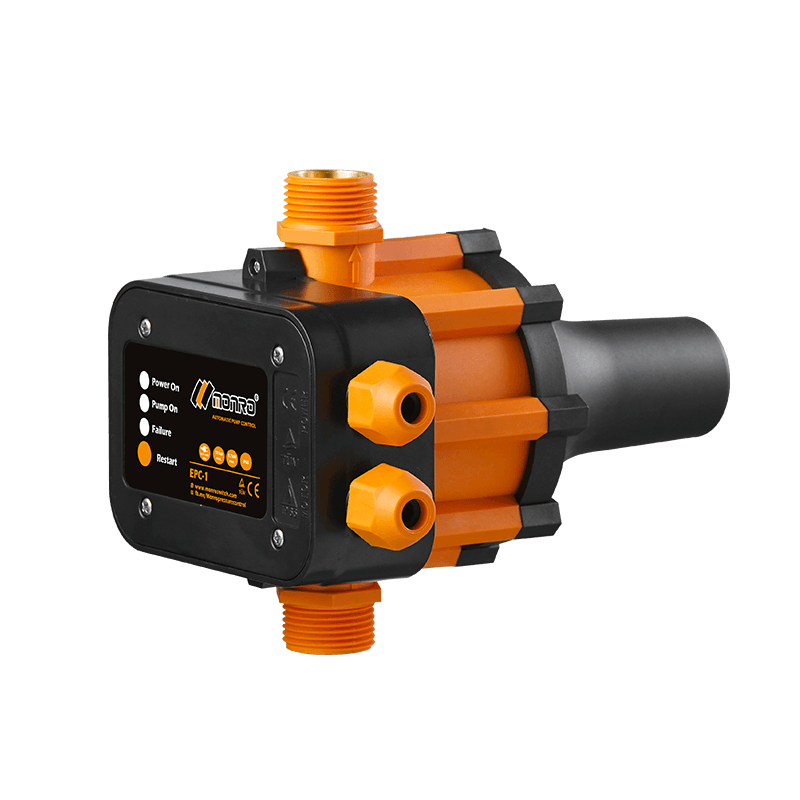 EPC-1
EPC-1Monro EPC-1 model pump controller is the classic and basic type, was loved by user in the global mar...
-
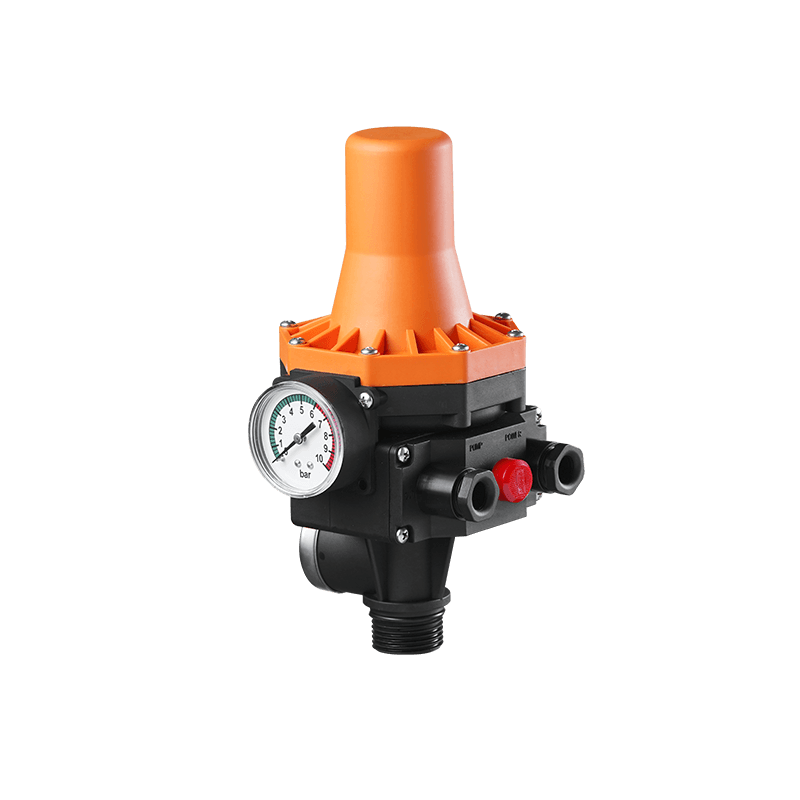 EPC-3
EPC-3Monro EPC-3 spain design auto on and off press control, an intelligent and economical system designe...
-
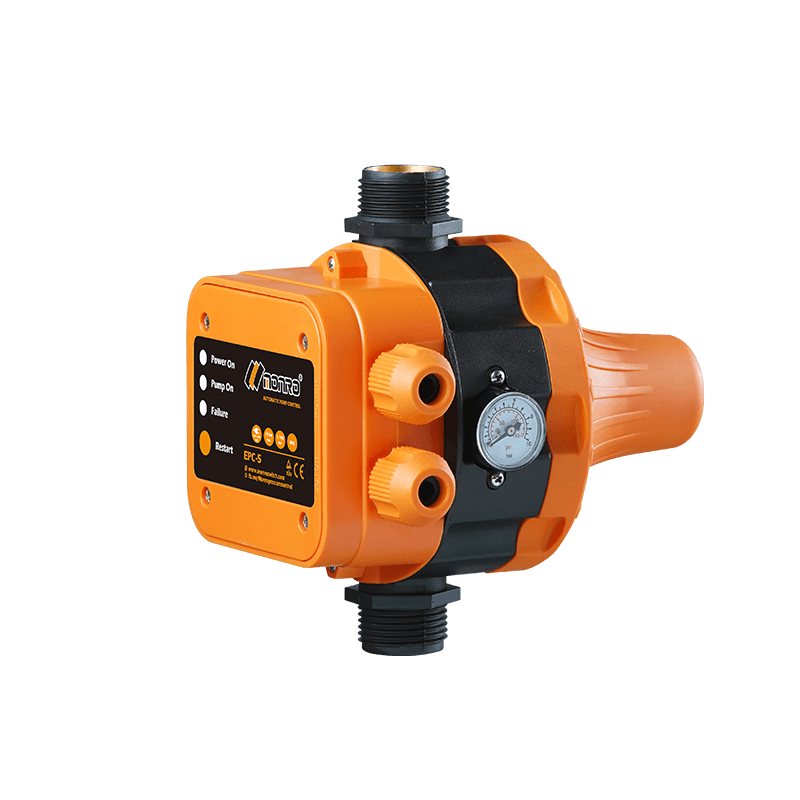 EPC-5
EPC-5Monro EPC-5 model automatic pump control, a device which assembled on the water pump (recommended si...
-
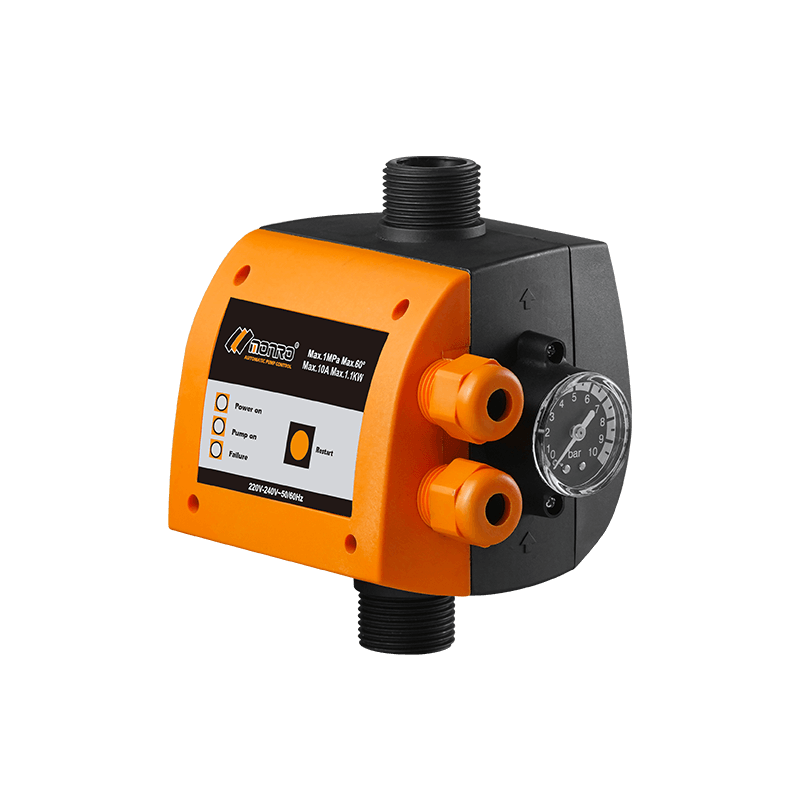 EPC-9
EPC-9Monro EPC-9 model pressure controller, is a big power device for automatic control and protection of...
-
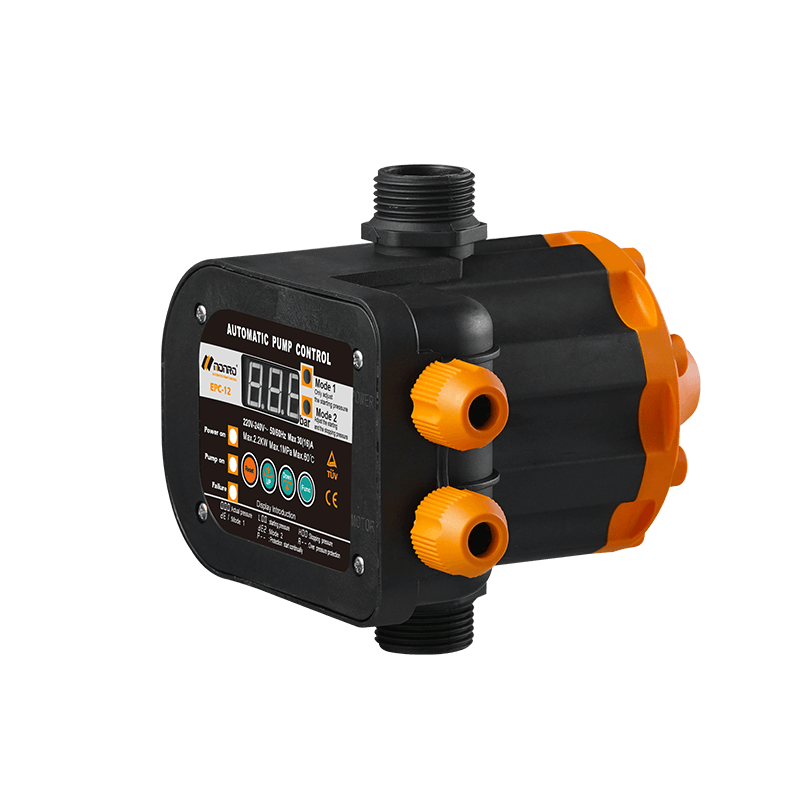 EPC-12
EPC-12Monro EPC-12 smart top-level automatic pump control is a multi-function model combined with traditio...
-
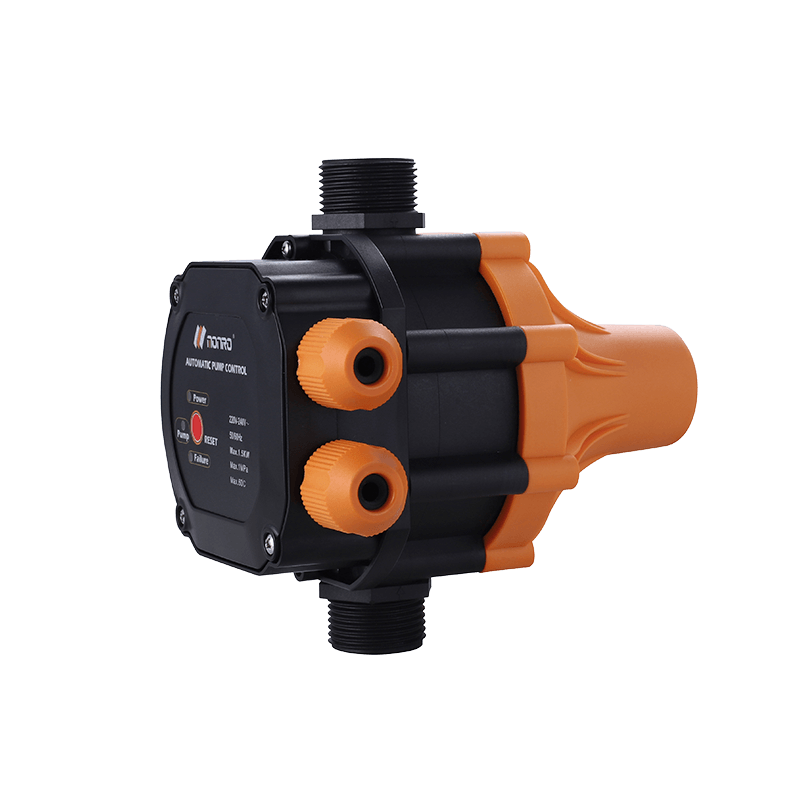 EPC-14
EPC-14Monro EPC-14 model pressure control is a big power device for automatic control and protection of el...
-
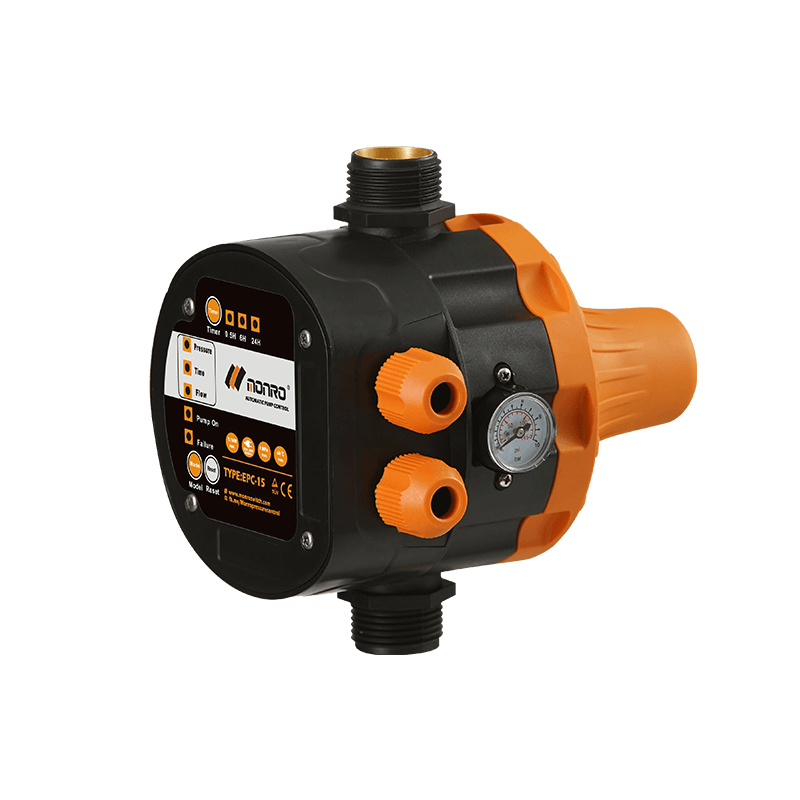 EPC-15
EPC-15Monro EPC-15 model automatic pump control, a device which assembled on the water pump (recommended s...
-
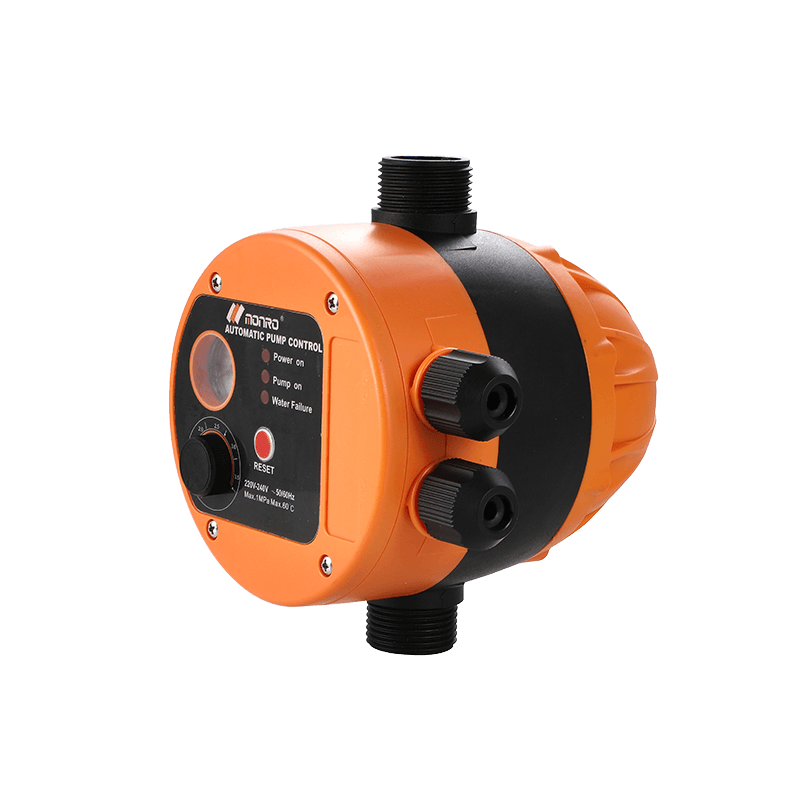 EPC-16
EPC-16EPC-16 is the new patent pump controller by Monro. Its key highlight is tooless (manual knob) start...
find our office
Committed to providing professional pressure control solutions for various types of water pumps and air compressors.

 简体中文
简体中文 English
English Español
Español